Washington D.C. [USA], May 27 (ANI): The unprecedented decline in the global air traffic because of governments closing borders worldwide and ordering would-be fliers to stay home has pushed multinational aerospace giants Boeing and Airbus to conduct a study to find how the coronavirus behaves during air travel.
As part of an industry push to curb virus risks during flight operations, the study, involving academics, engineers and medical experts, is expected to examine new measures to prevent disease transmission on airplanes, The WallStreet Journal reported quoting companies and people involved in the discussions.
Airlines have been trying to reassure passengers onboard that masks and filtered cabin air provide reliable protection from infection in flight.
People from Boeing with direct knowledge of the matter were quoted as saying that it is developing computer models that simulate the cabin environment and could ultimately inform decisions by airlines, health officials and regulators on how to prevent the virus's spread. "We're taking steps to better understand any potential risks," a spokesman said.
Also Read | Amazon in Advance Talks to Acquire Self-Driving Car Startup Zoox.
Meanwhile, Airbus said the plane maker is exchanging information with universities in the U.S. and other countries. Airbus engineers are also exploring other methods of reducing the spread of the virus including self-cleaning materials, a disinfectant that can last for five days and touchless devices in lavatories, the company said.
United States' Federal Aviation Administration (FAA) has been in touch with Boeing, Airbus and other experts at the Centers for Disease Control and Prevention (CDC) to assess coronavirus risks for fliers and how to mitigate them, people familiar with those discussions said.
While much is known about airplane ventilation systems and how some pathogens can spread in flight, researchers said they are still learning how the new coronavirus behaves in various settings.
"There are a lot of unknowns right now," said John Scott Meschke, a microbiologist from the University of Washington.
The issue is becoming more pressing as more passengers start to board planes again. Airlines have said bookings are beginning to pick up after weeks of near-zero demand, and they are adding back flights after slashing their schedules by as much as 90 per cent.
On the Friday before the Memorial Day holiday weekend in the US, the Transportation Security Administration screened nearly 349,000 people--still 88 per cent below year-ago levels but the most since March.
Boeing officials further said that the study is also trying to find new technologies to enhance safety, including using ultraviolet light as a disinfectant and antimicrobial coatings for frequently touched surfaces.
Combating the virus in flight is challenging because of commercial air travel's incompatibility with social distancing, some experts said. While researchers broadly agree that airplanes' frequently replaced cabin air and strong filters are effective at removing pathogens, they may not help someone sitting near an infectious passenger who is coughing.
"Social distancing is impossible in an airplane," said Qingyan Chen, a Purdue University engineering professor who recently discussed the topic with Boeing.
Studies of previous epidemics, including SARS and avian flu, suggest that airplane passengers who sit near infectious passengers are at the highest risk. Experts said airlines' requirements that passengers wear masks should significantly reduce the risk they will spread the virus by sneezing, coughing or talking.
The CDC has said the virus appears primarily to spread person to person within about 6 feet through droplets excreted by coughing, sneezing or talking.
Airlines have started requiring passengers to wear face coverings during flights and at various other times, such as during check-in, earlier this month. But there is no industry-wide rule, and some airlines say they have limited options if passengers refuse to keep masks on.
They have also ramped up cleaning efforts--disinfecting bathrooms, tray tables and seats between flights. Some are distributing sanitary wipes to passengers. The CDC has said transmission through touching contaminated surfaces is a possible, though not primary, mode of infection. (ANI)
(This is an unedited and auto-generated story from Syndicated News feed, LatestLY Staff may not have modified or edited the content body)



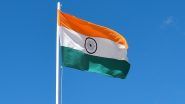
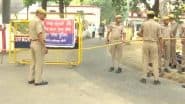

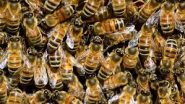
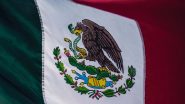


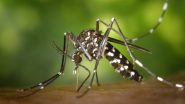


 Quickly
Quickly





















